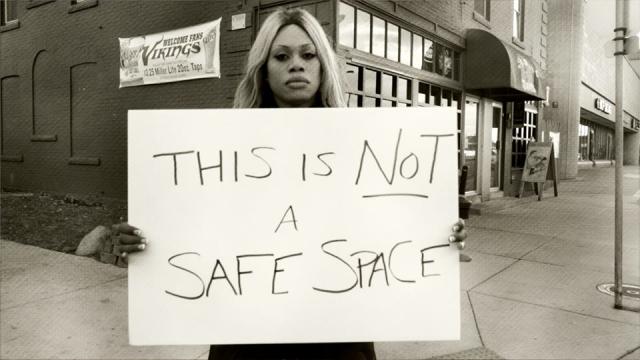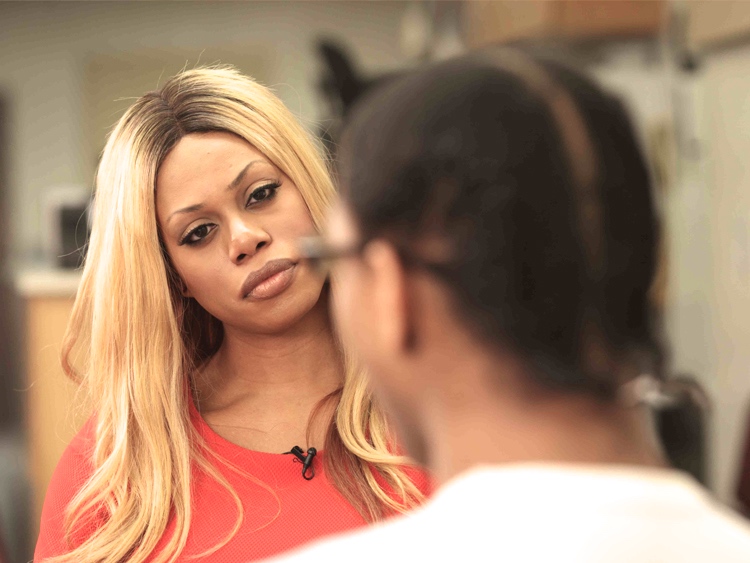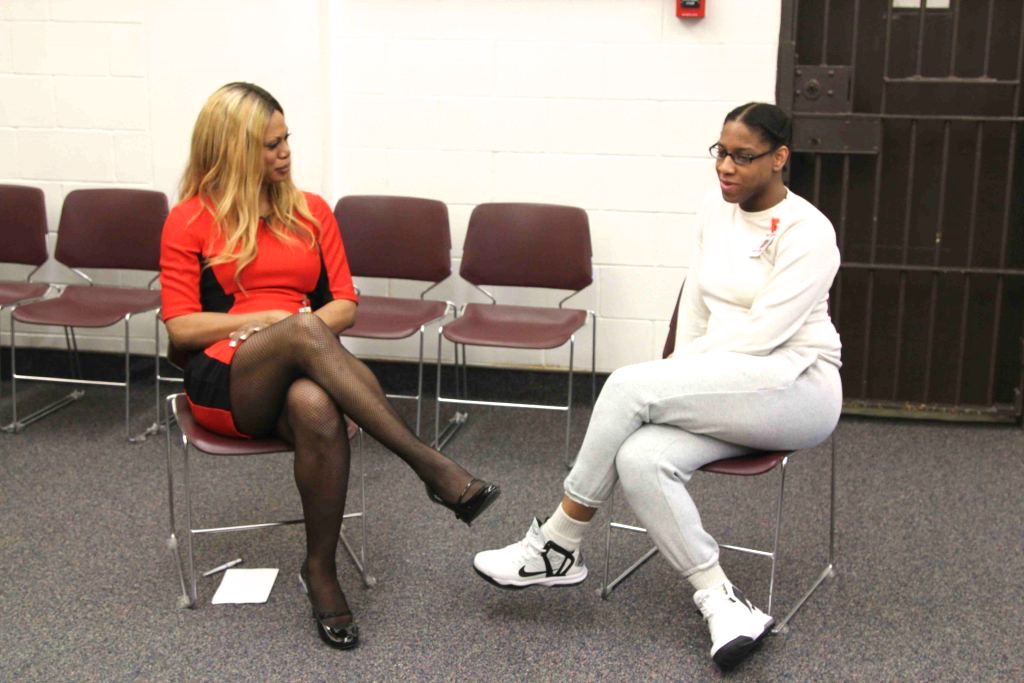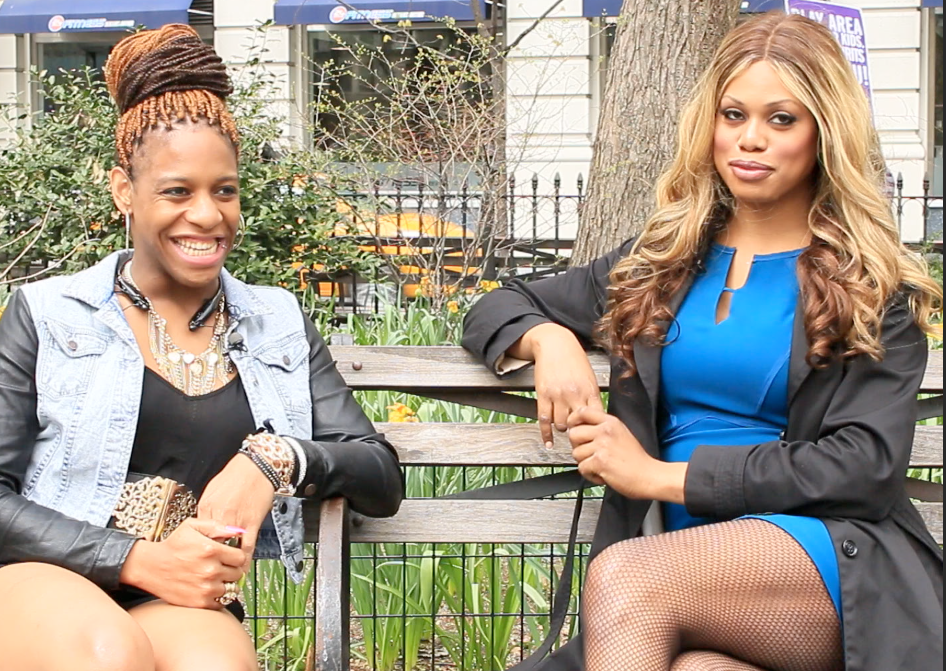
More than 50% of anti-LGBTQ homicide victims are transgender women of color, according to the National Coalition of Anti-Violence Programs. The NAACP reports that African-Americans and Hispanics comprised 58% of all prisoners in 2008, even though African-Americans and Hispanics make up approximately one quarter of the U.S. population. Meanwhile, Trans Equality states that 21% of transgender women and nearly half (47%) of black transgender people have been incarcerated at some point in their lives. It is in this context that the life of a black bisexual trans woman named Chrishaun Reed “CeCe” McDonald must be understood.
In 2012, on her way to the store with a group of friends, CeCe was brutally attacked. A wounded man who was defending her life was killed. When police arrived on the scene, CeCe was presumed guilty despite a very visible and bleeding facial wound. After a coercive interrogation following her trip to the hospital, CeCe was incarcerated in a men’s prison in Minnesota and sent to solitary confinement.
An international campaign to free CeCe garnered significant support from media and activists, including actress Laverne Cox ("Orange is the New Black"). It was through this activism and support that CeCe’s sentence was ultimately reduced from murder to manslaughter. Since her release from prison, CeCe has dedicated herself to education and activism, joining the fight to end wrongful imprisonment and increase education about the biases and inequalities present in America’s criminal justice system. CeCe's powerful story – told in "Free CeCe!," a documentary directed and produced by Jacqueline Gares and executive produced by Laverne Cox, which screens at the Austin Gay and Lesbian International Film Festival (aGLIFF) this Saturday, Sept. 10 – highlights the groundswell of voices questioning the prison industrial complex and calling for its abolishment.
In an interview with Occupy.com, Gares said she first became aware of CeCe’s story when working on an LGBTQ television series called “In the Light.” Gares recalled that she was always scouring headlines for LGBTQ stories to highlight on the show, and that she had originally intended to do a segment on CeCe’s story back in 2012. CeCe’s name came up when Gares approached Cox to join “In the Light” as a producer, long before Cox had risen to her current position of media notoriety. “In the Light” ended before the CeCe segment had a chance to air, but after Cox received clearance to film a visit with CeCe at St. Cloud.
Gares returned to work as a freelance producer, and in March 2013 she heard Cox speaking publicly about CeCe, the injustices in American prisons and law enforcement, and violence against trans women of color. Gares said she recalled thinking, “Why hasn’t anybody done anything about this?” She immediately set up a meeting with Cox in New York City to pitch the idea of turning the segment about CeCe’s story into a film. Gares said she was interested in what life was going to be like for CeCe, and what it would mean for her to be free. “We just went for it,” Gares said. “We picked up where we left off with pre-production [for the original segment]. I made phone calls. I wrote letters to CeCe in prison.”
“[CeCe] was really excited,” Gares remembered. “She had been really depressed, too, when the show had been canceled.” Cox got some time off from filming "Orange is the New Black" for Thanksgiving in 2013, and she flew to Minnesota to visit CeCe in prison. “It was pretty amazing,” Gares said. “I didn’t know how amazing it would be. It was so powerful, that in-prison interview, and we did another interview when CeCe was released.”
Those first two interviews are the basis of the documentary, which unpacks the racism, sexism and transphobia that lead to CeCe’s conviction and imprisonment. “I’m a white, cis lesbian. My eyes were opened making this film,” admitted Gares, who said she had known that the prison system was problematic, but “prison abolition – what's that? I didn’t know.” Gares said she started researching the Sylvia Rivera Law Project and the works of Angela Davis to help her understand the prison industrial complex, and set up an interview between CeCe and Davis as a part of the film. “It was incredible and gave a lot of life to the production to have Angela Davis talk with CeCe about her time in prison and what it means afterward. It was powerful and will stay with all of us," Gares said.
“I wanted the film to show how CeCe was not ever seen as a victim or someone who was attacked. She was completely criminalized," she continued, saying that it was also important to show that it was the system itself that was oppressive to CeCe, not the other prisoners. “People think she was being harassed, and the victim of violence from the other prisoners."
But Gares said CeCe debunked all of those misconceptions, finding ways to create a climate of mutual respect and communication in the prison where the inmates all learned from and educated one another. “Every misconception I ever had was dismantled by CeCe herself. That’s what the prison industrial complex doesn’t want you to know. That’s what I wanted to translate to the film,” she said.
“CeCe’s story is important because it is often repeated and rarely reported. The frequency and severity of violence directed toward trans women of color must end. I wanted to produce a useful film that sensitizes audiences and amplifies the voices and lived experiences of trans women of color. "Free CeCe!" is a call to action for a cultural shift. We need cultural competency training, public policy and legislation to recognize the humanity, dignity and authentic lives of trans people.”
For people who want to make a difference in the prison abolition movement, Gares suggested getting involved with organizations like the Sylvia Rivera Law Project, Critical Resistance and Black and Pink. For reading, she suggested The Abolitionist and, Captive Genders and The New Jim Crow, among others. Writing letters to the incarcerated and looking at the laws in the places that you live are other ways to get involved.
Gares said she hopes "Free CeCe!" will be available streaming as soon as 2017, but right now her focus and priority is to make sure the film gets educational distribution so that it can be shown at universities across the United States.“I hope we’ll get a mainstream audience for the film,” Gares said. “I want it to be seen by as many people as possible.”
The next screening of "Free CeCe!" is Saturday, Sept. 10 at aGLIFF.
3 WAYS TO SHOW YOUR SUPPORT
- Log in to post comments

















